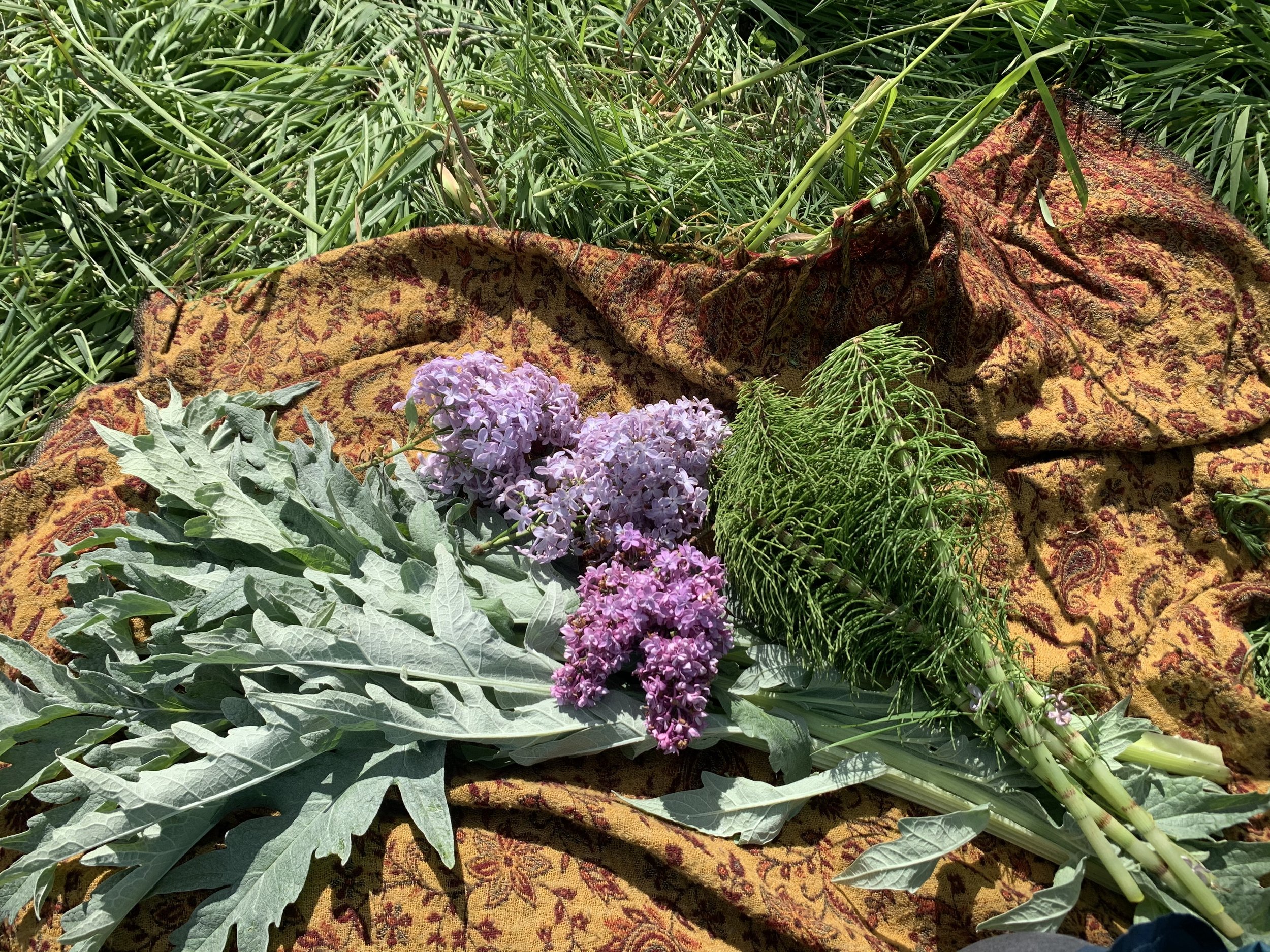free herbal support for bipoc
Plant medicine is the people’s medicine.
We all come from the land. It’s colonization, empire, and violence that have sought to sever our relationship to this earth. Some of my first memories that I’m grateful for are being treated with traditional korean medicine. As a young child, I was sick often. Epileptic, constant stomach pains, etc. I would get moxa treatments, where aged mugwort was burned along the meridians of my body. It felt like magic. It wasn’t until I was older and met mugwort again, that I realized the familiar smell and was returned to myself in a deep and potent way.
It is from my own journey of chronic health issues and the mistreatment by the medical industrial complex (M.I.C.) that I first sought out community-led solutions for my daily health needs that felt empowering, and allowed me to build a more intuitive relationship with my body and this earth. I work with herbs as a settler on Coast Salish lands who believes in building relationship with the plants and land around me. I learn a lot from teachers and elders at Canoe Journey Herbalists, and other mentors and educators, and largely through queer and trans, disabled BIPOC who are rooted in Indigenous sovereignty, Black liberation, and anti-imperialism.
Hold space for where you are, taking a holistic look at your symptoms, your mental/emotional/spiritual/physical well-being, and to provide you with suggestions of care and herbal recommendations to support you towards a deeper balance of self
Teach you how to use moxa on yourself safely, and to work with different meridians of your body to facilitate healing and daily care
Support you in incorporating herbs through various parts of your life, including in your food, as teas, as lotions and salves, etc.
Provide education on different plants and support you in developing a deeper relationship to plant allies
Create formulas and blends made specifically for you for acute ailments and ongoing concerns
Consider the medications you are taking and ensure that the herbs work well with them, and are not contraindicated
My style of care stems from the community education that I have been honored to receive from teachers, largely through Canoe Journey Herbalists, and friends & loved ones who are magical herbalists. I strive towards deep relationship with the plants I work with, ask permission before harvesting from the land stewards and the plants themselves, and try to grow my own medicine or gather/tend from local farms within this bioregion as much as possible.
It is through my connection to my ancestral care practices that I enter into this work as an herbalist as a Korean settler on Puyallup land. The plants and beings of this land, and the Coast Salish people, as well as many other Native and Black herbalists, have been profound teachers in my life since I have moved here from Lenape lands of New York. Indigenous sovereignty, Black liberation, the end to imperialism, a unified Korea, a free and liberated Palestine — all of this is deeply interwoven when I consider my work as an herbalist. I arrive knowing that all our liberations are tethered together, and that this extends to our plant relatives, our earth and elemental relatives, spirits, and animals alike.
Herbal medicine can be helpful with:
Anxiety, depression, and emotional health
Daily health support
Supporting through major life transitions
Recovering from surgery or illness, including gender-affirming surgeries
Healing from trauma & grief
Respiratory issues
Digestive issues
Autoimmune disorders
Acute or chronic pain
Sleep issues & fatigue
Perinatal health, including through fertility & conception, pregnancy, postpartum care
Reproductive health support
Endocrine disorders
Grounding & embodiment
& Much much more
